- Industry insights
- People in tech
- Product development
- Tech trends at BEECODED
- 30 Jul 2025
Ethical Challenges in Building AI-Driven SaaS Products in 2025
Who’s responsible when an AI chatbot gives misleading information that ends up influencing a customer’s decision?
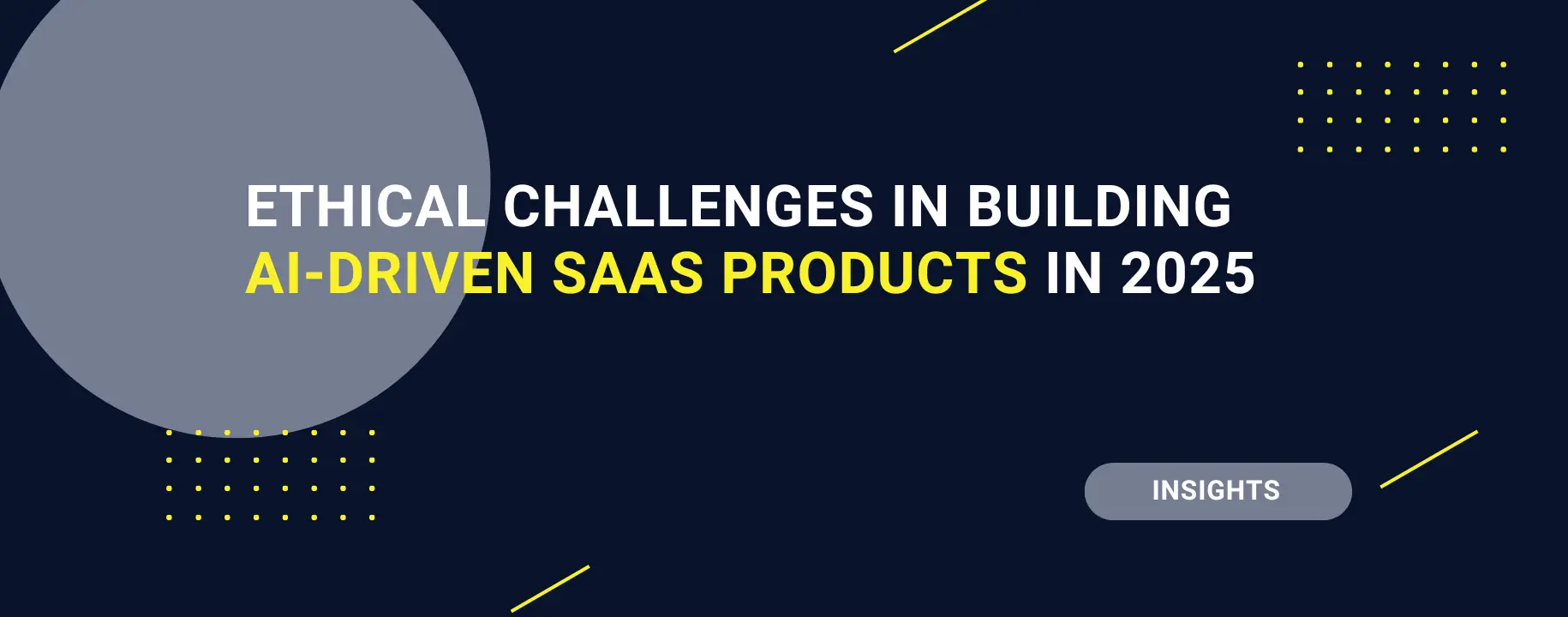
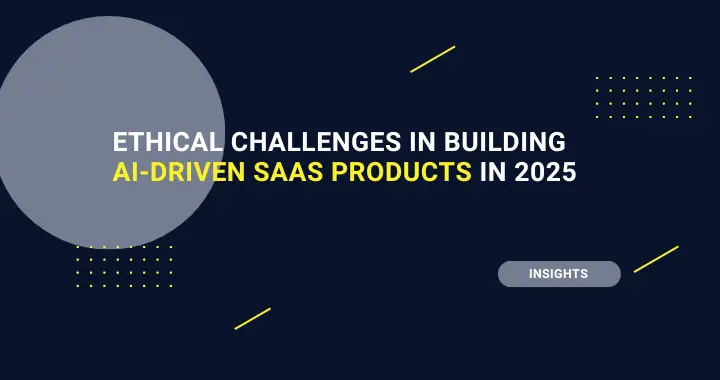
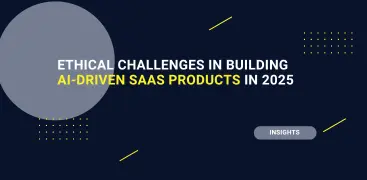
Table of contents
- What is AI ethics and why does it matter?
- What are the main ethical considerations around AI in SaaS?
- What do we understand by ethical in AI-Driven SaaS products?
- How can SaaS providers maintain ethical standards in their AI?
- Ethical AI in SaaS: How can companies build trust?
- Summary: What can SaaS companies do to earn trust?
Contributors

Today we’re talking about ethical AI in SaaS, a topic that’s gaining serious traction across the SaaS industry, both for companies and for the users of digital products. But before diving in, let’s start with a little scenario:
Who’s responsible when an AI chatbot gives misleading information that ends up influencing a customer’s decision? Is it the algorithm’s fault? The SaaS provider’s? The customer’s, for asking a vague question? Or maybe the compliance team’s, for not testing edge cases?
We know, AI ethics is a tricky path to walk. But it’s one we have to walk, because it’s a path to the future. Keep reading our article to explore the ethical challenges in building AI-driven SaaS products.
What is AI ethics and why does it matter?
Shortly, AI ethics in SaaS refers to building AI solutions that are responsible, secure, transparent and that respect users’ rights. In plain terms, it’s about developing tech that does good.
Why is ethical AI in SaaS so important?
Because:
- It helps build safe and fair products
- It creates trust between company and customer
- It helps avoid legal and reputational risks
- AI directly influences user decisions.
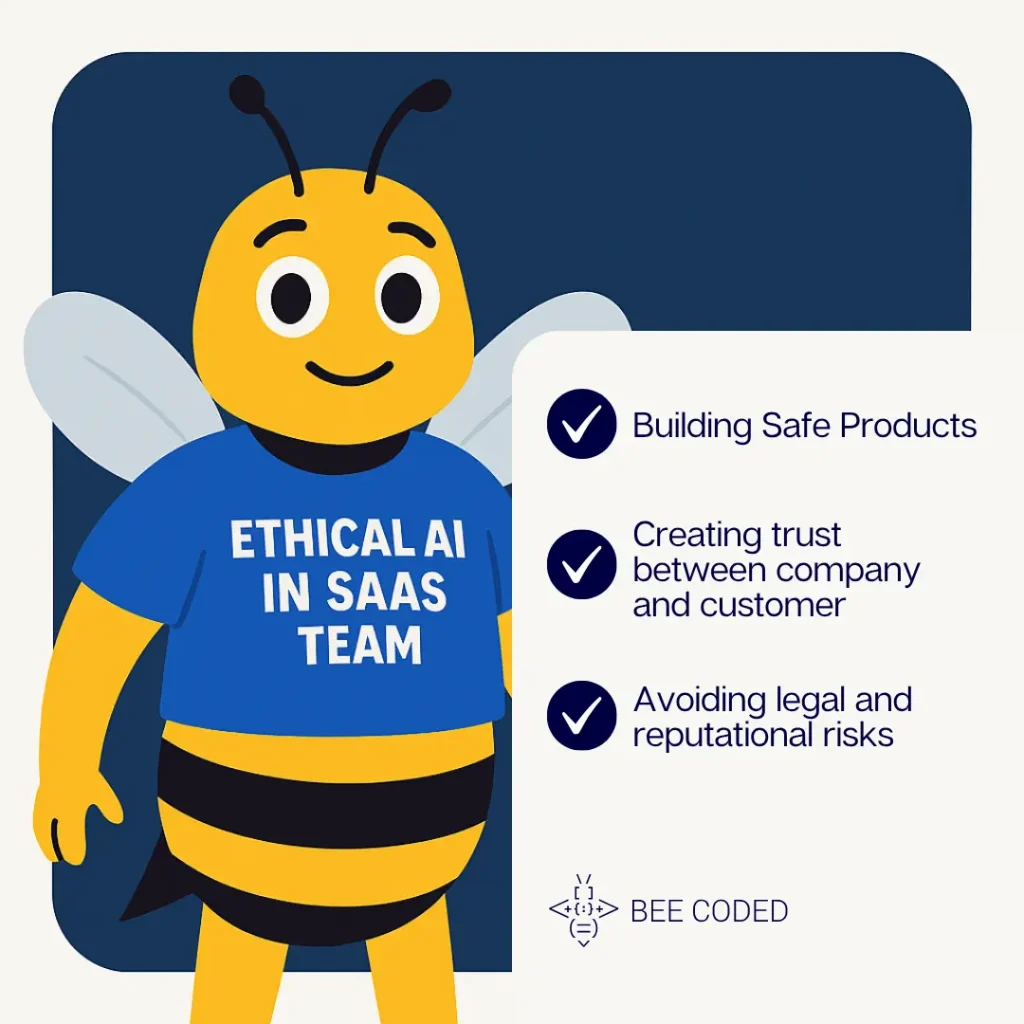
What are the main ethical considerations around AI in SaaS?
Fairness
Fairness is challenged in many contexts. AI can replace an entire department of employees or assess their performance in other contexts. How do we ensure that these decisions are fair and non-discriminatory?
Privacy
AI trains on large amounts of data, some of which being very sensitive (e.g. medical or banking). So how do we protect that data?
Accountability
When AI makes a mistake, who’s accountable? In a SaaS HR platform, if a recruitment algorithm rejects candidates based on biased data, who takes the blame? The developer? The company? The HR team?
Bias
AI is created by people. And people have biases, which algorithms can pick up and even amplify at a larger scale.
What do we understand by ethical in AI-Driven SaaS products?
Ethical AI in SaaS means building responsible, safe, transparent AI tools that respect user rights.
How is AI already being used in SaaS?
AI is everywhere in SaaS, and it’s helping to:
- Automate repetitive tasks (finance automation, supply chain automation, HR automation etc)
- Power virtual assistants and chatbots
- Personalize content and recommendations
- Detect fraud or suspicious behavior etc.
How can SaaS providers maintain ethical standards in their AI?
In this section, we take each ethical issue and identify its practical ‘antidote’:
- Fairness
- Offer reskilling programs for employees whose roles are automated.
- Audit algorithms to spot and fix bias.
- Keep humans in the loop, especially in sensitive areas like hiring.
- Privacy
- Train AI on anonymized or synthetic data.
- Follow regulations like GDPR.
- Set clear policies for storing, encrypting and deleting data.
- Accountability
- Define responsibilities clearly across development and operations.
- Use documented, tested and explainable use cases.
- Set up AI governance teams or ethics boards.
- Bias
- Build diverse AI development teams.
- Use clean, balanced data sets.
- Bring in external audits to detect and correct bias.
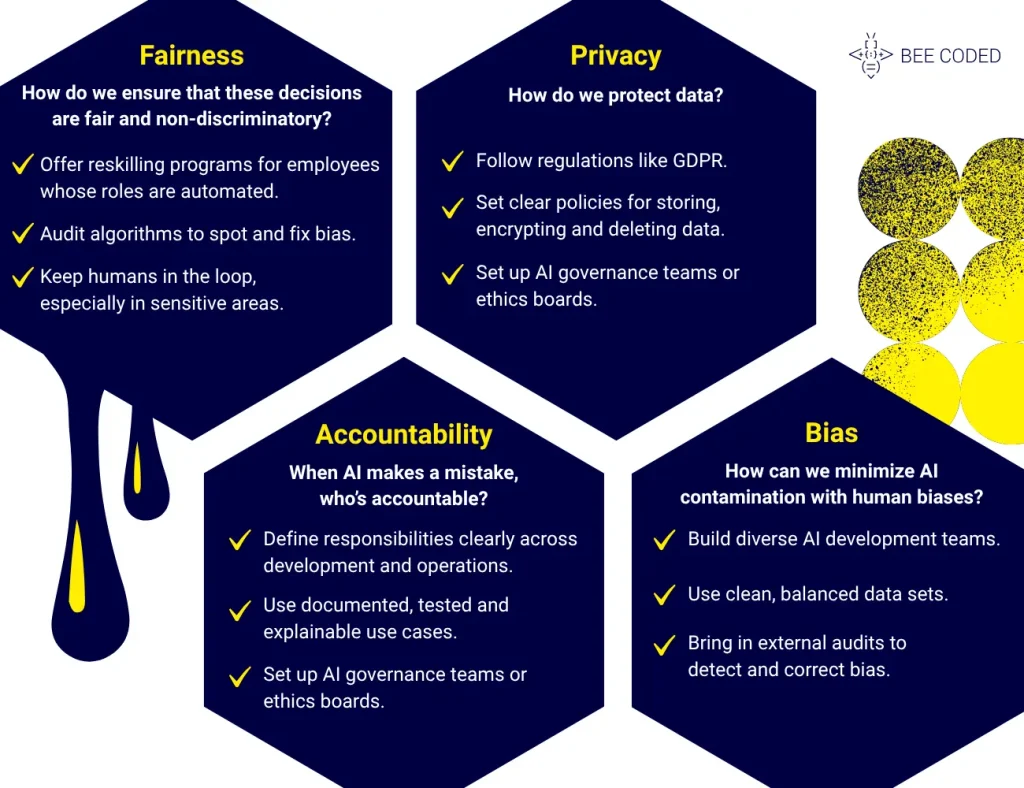
UNESCO’s Principles for Ethical AI
- Proportionality & harm prevention (AI must not go beyond its intended scope).
- Safety & security (We must prevent risks and vulnerabilities).
- Privacy (We must protect personal data at all stages).
- Collaborative governance (We must bring diverse voices to the table).
- Accountability (There must be control and tracking mechanisms).
- Transparency (We need to make AI decisions explainable).
- Human oversight (Final decisions must be made by people).
- Sustainability (AI must respect the principles of sustainable development).
- Education (People must understand how AI works).
- Non-discrimination (Tech must be inclusive and fair).
Ethical AI in SaaS: How can companies build trust?
AI is often used as a selling point. And yes, it sounds impressive indeed, but customers will also ask:
- How exactly is this AI being used?
- Is it safe?
- Who’s accountable if something goes wrong?
Companies need to explain:
- How their AI works
- What kind of data it uses
- What safeguards are in place.
A 2024 Deloitte study found that 62% of B2B buyers in North America consider “ethical AI development” to be one of their top decision-making factors when choosing SaaS platforms (skywinds.tech).
In other words, it’s not enough to have AI. You need ethical AI in SaaS.
Summary: What can SaaS companies do to earn trust?
- Clearly define responsibility for any AI-driven errors
- Be fully transparent about how AI is used
- Continuously monitor and improve algorithms
- Follow international principles (like those from UNESCO)
- Educate teams and users about AI ethics.
Need help building ethical AI into your SaaS? We’re here to help you develop smart, modern and ethical products from day one.
Get in touch, and let’s build it the right way! See our SaaS development services.
Top 10 SaaS Trends That Dominate in 2025 and How to Adapt
How Finance Teams Save $100K Annually Through Smart Automation
How Supply Chain Automation Can Save You Hundreds of Labour-Days and Maximize ROI